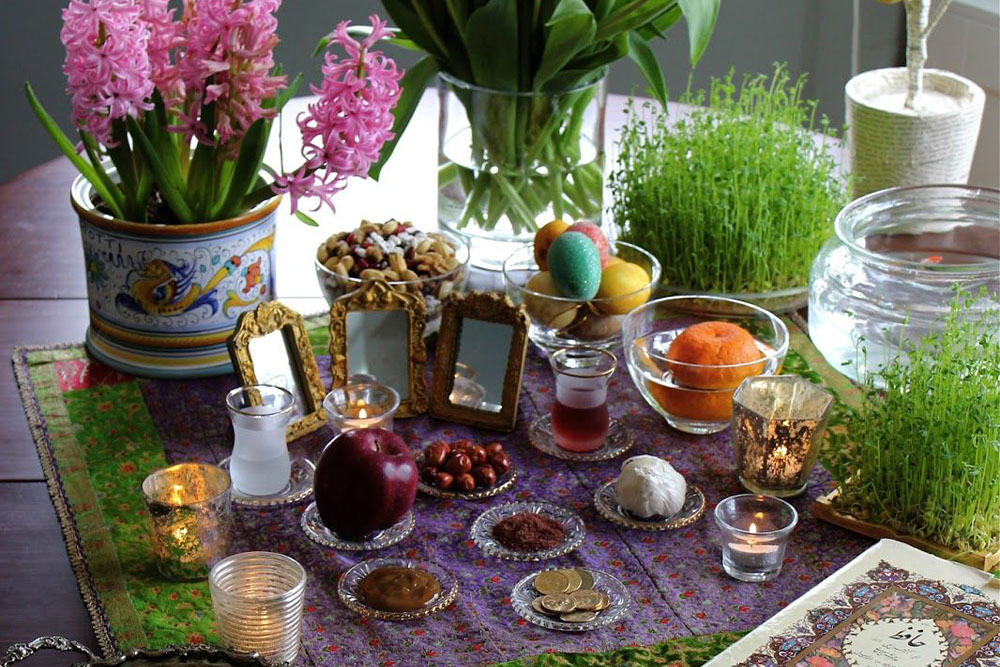History of the Persian New Year Meal

The philosophy behind eating herb rice with fish on the eve of the Persian new year: One common tradition of the Iranians on the eve of the new year consists in eating herb rice and fish. Behind this meal on this occasion lies a philosophy that originates from our old beliefs.
Many believe that this tradition comes from the story of Prophet Solomon and his ring. It should remind to search for Solomon’s ring once more and stands for the efforts of the people to reach the great name of love which is connected with Nowruz (Persian New Year) and the resurrection of spring.
Solomon possessed a ring with which he could make demons and fairies his slaves. One day, a demon disguised himself as Solomon, took his ring and ascended the throne. The demon threw the ring into the sea so that it couldn’t fall into the hands of Prophet Solomon.
Solomon thereafter tried to convince the people that a demon took his place and had thrown his ring into the sea. But nobody believed Solomon. That’s why he went to the sea and started fishing. After a while, he caught a fish, opened its stomach and found his ring.
Some time later, people realised that the real Solomon was away from the city and not sitting on the throne. On the thirteenth day, the demon was dragged out of bed and everybody left the city in order to bring Solomon back to the throne. On the basis of this story, Persians eat since then fish before the new year hoping to find the truth and to understand it better.
Due to the fish’s cold temperament, the ancient Persian medicine recommends eating it always with olives in order to neutralise its cold. For dessert, dates should be consumed as a further correction.
The ancient Persian medicine advises locals of cold countries and for the cold season to eat much food with warm temperament.
 Free delivery in Zurich from 40 CHF
Free delivery in Zurich from 40 CHF